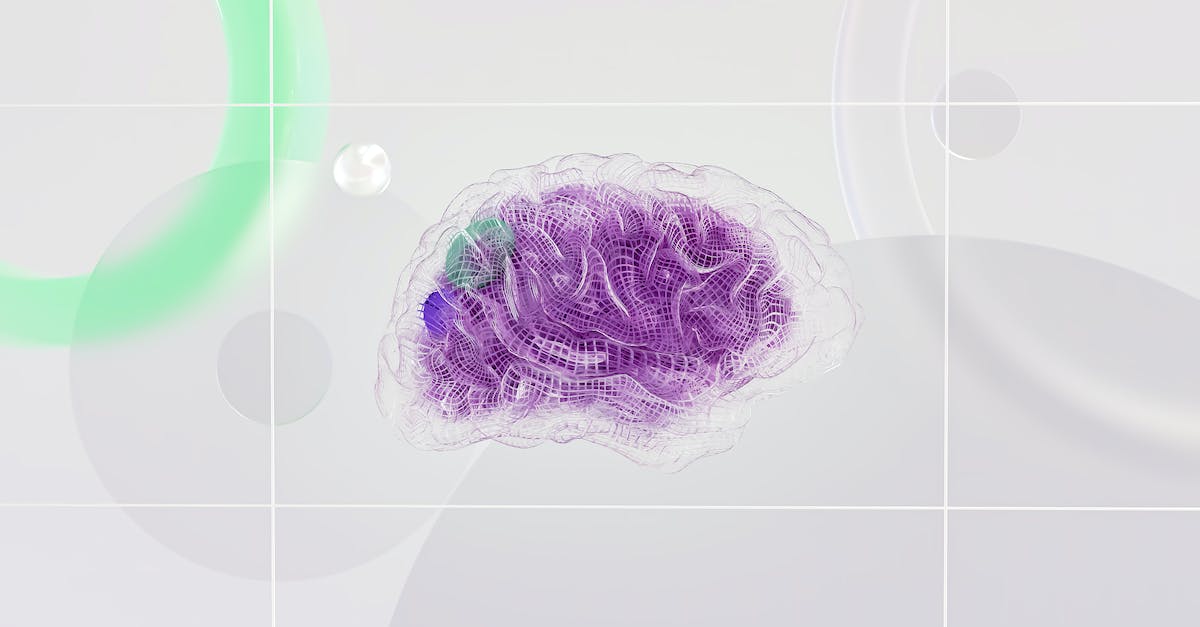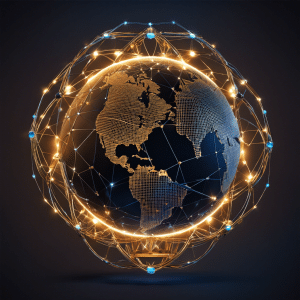Welcome to the future of blockchain technology! In the year 2024, the intersection of artificial intelligence (AI) and blockchain is set to revolutionize the way we live, work, and transact. Imagine a world where AI-powered smart contracts streamline business operations, enhance security, and eliminate the need for intermediaries. Brace yourself for a glimpse into the exciting possibilities that await as AI takes center stage in the blockchain landscape.
In this article, we will explore the incredible potential of AI in blockchain and how it is poised to reshape various industries. From finance and supply chain management to healthcare and cybersecurity, AI-powered blockchain solutions are paving the way for increased efficiency, transparency, and trust. Get ready to dive into the future of decentralized technologies, where AI algorithms optimize consensus mechanisms, enhance data privacy, and unlock new opportunities for innovation.
Join us as we embark on a journey into the world of AI in blockchain, where the merging of these two transformative technologies promises to unlock a new era of possibilities. Let’s explore the future together and discover how AI is set to revolutionize the blockchain landscape in 2024 and beyond.
The Future of Blockchain Technology
In the rapidly evolving technology landscape, the future of blockchain looks incredibly promising. With the integration of artificial intelligence (AI), blockchain technology is set to revolutionize various industries, enhance security, and streamline business processes. Let’s delve into what the future holds for blockchain technology.
AI-powered Smart Contracts
One of the most significant advancements in blockchain technology is the advent of AI-powered smart contracts. These contracts are self-executing and automatically enforce the terms and conditions specified within them. By leveraging AI algorithms, smart contracts can analyze and process complex data, making them more efficient and reliable. In addition, AI-powered smart contracts reduce the need for intermediaries and provide increased transparency and security.
Optimized Consensus Mechanisms
Consensus mechanisms are vital elements of blockchain networks, ensuring agreement and trust among participants. With the integration of AI algorithms, consensus mechanisms can be optimized for better performance and scalability. AI can analyze vast amounts of data, identifying patterns and improving the consensus process. This optimization will further enhance the speed and efficiency of blockchain networks, making them more suitable for high-volume transactions.
Enhanced Data Privacy
Data privacy is a major concern in today’s digital age. With AI in blockchain technology, new opportunities arise for improved data privacy and security. AI algorithms can analyze and detect potential threats and vulnerabilities in real-time, ensuring that sensitive information remains protected. Moreover, AI can enable data encryption techniques that enhance privacy, making blockchain networks even more attractive for organizations handling sensitive data.
Unlocking Innovation Opportunities
The integration of AI and blockchain technology opens up a world of innovation opportunities. By combining the strengths of both technologies, new solutions can be developed in areas such as supply chain management, healthcare, finance, and more. AI can analyze blockchain data to identify trends, patterns, and insights that can drive innovation and improve decision-making processes. This combination has the potential to revolutionize industries and create new business models.
As we look ahead to 2024 and beyond, the future of blockchain technology appears incredibly promising. The integration of artificial intelligence brings numerous benefits, including AI-powered smart contracts, optimized consensus mechanisms, enhanced data privacy, and innovation opportunities. The possibilities are virtually limitless, and it’s only a matter of time before AI and blockchain reshape industries and transform the way we conduct business.
The Intersection of AI and Blockchain
Artificial intelligence (AI) and blockchain technology are two cutting-edge innovations that have the potential to revolutionize various industries. When combined, they form a powerful synergy that can unlock new possibilities and reshape the way we do business.
AI, with its ability to analyze vast amounts of data and make intelligent decisions, brings a new level of efficiency and automation to businesses. Blockchain, on the other hand, offers a decentralized and transparent platform for secure transactions and data sharing. When integrated, these technologies create a robust ecosystem that can drive innovation and solve complex challenges.
One of the main applications of AI in blockchain is in the area of smart contracts. These self-executing contracts automatically trigger actions when predefined conditions are met, eliminating the need for intermediaries and reducing costs. With AI-powered smart contracts, businesses can streamline their operations, ensure compliance, and reduce the risk of fraud.
Another area where AI and blockchain intersect is in consensus mechanisms. Traditional blockchain networks rely on computationally intensive processes such as mining to validate transactions. However, AI algorithms can optimize these consensus mechanisms, making them more energy-efficient and scalable. This is particularly useful in large-scale applications where speed and efficiency are crucial.
Furthermore, AI can enhance data privacy in blockchain networks. By leveraging machine learning algorithms, sensitive data can be encrypted and securely stored on the blockchain, ensuring that only authorized parties have access to it. This not only enhances security but also builds trust among participants in the network.
The integration of AI and blockchain also opens up new opportunities for innovation in various industries. For example, in supply chain management, AI-powered blockchain solutions can track and verify the authenticity and provenance of goods, reducing counterfeit products and ensuring product quality. In healthcare, AI algorithms can analyze patient data stored on the blockchain to identify trends and patterns, leading to personalized treatments and better health outcomes.
The intersection of AI and blockchain holds tremendous potential to transform industries and drive innovation. From streamlining business operations to enhancing security and privacy, the combination of these technologies offers a wide array of benefits. As we move into the future, the integration of AI and blockchain will continue to shape the way we conduct business, paving the way for a more efficient and secure digital economy.
AI-Powered Smart Contracts: Streamlining Business Operations
Smart contracts have revolutionized the way business transactions are conducted on blockchain networks. These digital agreements automatically execute themselves once predefined conditions are met, eliminating the need for intermediaries and ensuring transparency and efficiency. Now, imagine combining the power of smart contracts with the capabilities of artificial intelligence (AI).
AI-powered smart contracts have the potential to further streamline business operations by automating complex tasks and decision-making processes. With AI algorithms integrated into smart contracts, businesses can optimize resource allocation, reduce human errors, and improve overall productivity.
One of the key advantages of AI in smart contracts is the ability to interpret and analyze vast amounts of data in real-time. AI algorithms can process and analyze data from various sources, such as market trends, customer behavior, and financial indicators. This data-driven approach allows businesses to make informed decisions and take actions based on insights derived from AI analysis. As a result, businesses can adapt quickly to market changes, identify potential risks, and seize opportunities.
Another area where AI-powered smart contracts can significantly improve business operations is supply chain management. By integrating AI algorithms into smart contracts, businesses can automate and optimize supply chain processes, such as inventory management, logistics, and product tracking. AI can analyze data from sensors, IoT devices, and other sources to detect anomalies, predict demand, and optimize routes, leading to reduced costs, faster delivery, and improved customer satisfaction.
Furthermore, AI can enhance security and fraud detection within blockchain networks. AI algorithms can analyze patterns and anomalies in data transactions, identify suspicious activities, and detect potential fraud attempts. By leveraging AI-powered smart contracts, businesses can strengthen their data privacy measures, ensure the integrity of transactions, and protect against cyber threats.
AI-powered smart contracts have the potential to revolutionize business operations on blockchain networks. By leveraging AI algorithms, businesses can streamline processes, optimize resource allocation, enhance security, and make data-driven decisions. As technology continues to evolve, the integration of AI and blockchain will unlock new opportunities for innovation and efficiency in various industries.
Enhancing Security and Eliminating Intermediaries
When it comes to blockchain technology, security is of utmost importance. Blockchain networks are already known for their strong security features. However, the integration of AI algorithms can further enhance security and eliminate the need for intermediaries.
By incorporating AI into smart contracts, businesses can automate security protocols and reduce the risk of fraudulent activities. AI-powered smart contracts use machine learning algorithms to analyze and identify potential security threats, flagging suspicious transactions in real-time. This proactive approach allows businesses to take immediate action to prevent security breaches.
Moreover, AI can play a crucial role in identity verification within blockchain networks. AI algorithms can analyze and verify user identities with a high degree of accuracy, eliminating the need for third-party intermediaries such as banks or government institutions. This not only reduces costs but also enhances privacy and prevents unauthorized access to sensitive information.
Another advantage of integrating AI into blockchain networks is the ability to detect and prevent fraud. AI algorithms can analyze patterns and anomalies in transaction data, identifying potential fraudulent activities before they cause any significant damage. This real-time fraud detection capability ensures that businesses can mitigate risks and maintain the integrity of their operations.
Overall, the combination of AI and blockchain technology offers a powerful solution for enhancing security and eliminating intermediaries. By automating security protocols, streamlining identity verification, and detecting fraud in real-time, businesses can maintain a high level of trust and integrity within their blockchain networks.
With the continuous advancements in AI and blockchain technology, we can expect even more robust security features and further elimination of intermediaries in the near future. This will not only benefit businesses but also enhance the overall reliability and efficiency of blockchain networks.
As we move into 2024, the integration of AI with blockchain technology will continue to revolutionize the way businesses approach security, paving the way for a more secure and decentralized future.
The Incredible Potential of AI in Blockchain
In the fast-paced world of technology, the integration of artificial intelligence (AI) into blockchain networks holds enormous potential for revolutionizing various industries. The combination of these two powerful technologies creates a synergy that can streamline processes, enhance security, and unlock new opportunities for businesses.
- Automating Complex Tasks: AI-powered smart contracts can automate complex tasks and eliminate the need for manual intervention. By leveraging machine learning algorithms, these contracts can analyze data, make intelligent decisions, and execute actions seamlessly. This automation not only saves time and resources, but also minimizes the risk of human error, making operations more efficient and reliable.
- Real-Time Data Analysis: AI algorithms integrated into smart contracts enable businesses to interpret and analyze real-time data. This capability opens up a world of possibilities for making data-driven decisions and adapting quickly to market changes. By harnessing the power of AI, businesses can gain insights, identify patterns, and make informed predictions, thereby staying one step ahead of the competition.
- Optimizing Resource Allocation: With AI in blockchain, businesses can optimize resource allocation more intelligently. By analyzing data on supply and demand, AI-powered smart contracts can automatically allocate resources to achieve the highest level of efficiency. Whether it’s optimizing manufacturing processes, managing inventory, or allocating transportation routes, AI-driven blockchain networks can ensure resources are utilized optimally.
- Enhancing Security: The integration of AI and blockchain technology offers enhanced security measures. AI algorithms can automate security protocols, streamline identity verification processes, and detect and prevent fraudulent activities in real-time. This level of automation helps maintain a high level of trust and integrity within blockchain networks, minimizing the risk of unauthorized access or tampering.
The continuous advancements in AI and blockchain technology are set to reshape industries and unlock a world of possibilities. Whether it’s automating complex tasks, leveraging real-time data analysis, optimizing resource allocation, or enhancing security, the potential of AI in blockchain is truly incredible. With every step forward, businesses are moving closer to a more secure, efficient, and decentralized future.
Reshaping Industries for Increased Efficiency and Transparency
As AI and blockchain technology continue to advance, they are reshaping industries and offering unprecedented levels of efficiency and transparency. The integration of AI into blockchain networks has the potential to revolutionize the way businesses operate, making processes more streamlined, cost-effective, and secure.
One of the key benefits of combining AI and blockchain is the ability to automate complex tasks. AI-powered smart contracts can execute predefined actions based on real-time data, eliminating the need for manual intervention and reducing the risk of human error. This automation not only saves time and resources but also ensures that transactions are carried out accurately and transparently.
Furthermore, AI can analyze vast amounts of data in real-time, providing valuable insights for decision-making. In a blockchain network, this data analysis can help optimize resource allocation, improve operational efficiency, and enhance the overall performance of businesses. By leveraging AI’s capabilities, organizations can make data-driven decisions, identify trends, and detect anomalies more effectively, ultimately leading to better business outcomes.
Another significant advantage of integrating AI into blockchain networks is enhanced security. Blockchain technology already offers a decentralized and immutable ledger, but AI can further strengthen security measures. With AI algorithms continuously monitoring transactions and network activity, potential security threats can be identified and mitigated in real-time. Additionally, AI can identify patterns of fraudulent behavior and provide an added layer of protection against malicious actors.
This convergence of AI and blockchain technology is transforming industries such as finance, healthcare, supply chain, and many more. It has the potential to create a more efficient, transparent, and trustworthy ecosystem where parties can collaborate and transact with confidence. By automating tasks, analyzing real-time data, optimizing resource allocation, and enhancing security, AI-powered blockchain networks are paving the way for a future where technology drives innovation and empowers businesses to thrive.
The possibilities are endless as AI and blockchain technology continue to evolve and improve. It is only a matter of time before we witness widespread adoption of these technologies across various industries. Stay ahead of the curve and embrace the power of AI in blockchain to unlock greater efficiency, transparency, and trust in your business operations.
Revolutionizing Finance and Supply Chain Management
When it comes to finance and supply chain management, artificial intelligence (AI) integrated into blockchain networks has the potential to revolutionize the way businesses operate. It offers a range of benefits, including streamlined processes, cost-effectiveness, and enhanced security measures.
One area where AI can make a significant impact is in finance. Traditional financial institutions often face challenges in managing large volumes of data and complex transactions. With the integration of AI into blockchain networks, these tasks can be automated and streamlined, leading to more efficient and cost-effective processes. AI-powered smart contracts can analyze real-time data, identify patterns, and execute transactions automatically, reducing the need for middlemen and minimizing the risk of errors. This can lead to faster transaction settlements and improved accuracy, enhancing overall financial operations.
Another area that stands to benefit from AI in blockchain is supply chain management. Supply chains are complex networks involving multiple stakeholders, from suppliers to manufacturers to distributors. AI can automate and optimize various aspects of the supply chain, such as inventory management, demand forecasting, and logistics. By integrating AI into blockchain networks, businesses can have access to real-time data and insights, allowing them to make data-driven decisions and improve efficiency. Additionally, the immutability and transparency of blockchain technology can enhance supply chain security and traceability, reducing the risk of counterfeiting and ensuring the integrity of products.
Overall, the integration of AI into blockchain networks has the potential to revolutionize finance and supply chain management. It offers streamlined processes, cost-effectiveness, and enhanced security measures. By automating complex tasks, analyzing real-time data, optimizing resource allocation, and ensuring transparency, businesses can improve efficiency, make data-driven decisions, and maintain trust within their networks.
The possibilities for the future of AI in blockchain are truly exciting. As the technology continues to evolve and improve, businesses can look forward to a more secure, efficient, and decentralized future. Whether it’s revolutionizing finance or transforming supply chain management, AI integrated into blockchain networks is set to reshape industries and create a more efficient, transparent, and trustworthy ecosystem. Keep an eye on the advancements in AI and blockchain technology, as they hold the key to unlocking endless possibilities for businesses across various sectors.
Transforming Healthcare and Cybersecurity
In addition to revolutionizing finance and supply chain management, the integration of artificial intelligence (AI) into blockchain networks is also transforming the fields of healthcare and cybersecurity. These advancements have the potential to greatly enhance the efficiency, security, and effectiveness of these critical sectors.
1. Healthcare
The healthcare industry is inherently complex, with numerous stakeholders, sensitive patient data, and a need for robust security measures. AI-powered blockchain technology can address these challenges by providing a secure, transparent, and immutable platform for storing and sharing patient information.
- Improved Data Sharing: With AI-enabled blockchain networks, healthcare providers, insurers, and other stakeholders can securely and efficiently share patient data. This enables accurate and real-time insights, leading to better diagnosis, treatment, and overall patient care.
- Enhanced Security: By combining AI’s analytical capabilities with blockchain’s decentralized and tamper-resistant nature, healthcare data can be stored in a highly secure manner. AI algorithms can also detect and mitigate potential security threats, safeguarding patient information from breaches and unauthorized access.
- Streamlined Operations: AI-powered analytics can extract valuable insights from the vast amount of healthcare data stored on the blockchain. This can help healthcare organizations optimize resource allocation, improve operational efficiency, and identify trends for personalized patient care.
2. Cybersecurity
In a digital world where cybersecurity threats continue to evolve, the combination of AI and blockchain technologies has the potential to revolutionize cybersecurity practices.
- Threat Detection and Prevention: AI algorithms can analyze large amounts of data, identify patterns, and detect anomalies that may indicate potential cyber threats. By integrating AI with blockchain, cybersecurity systems can proactively prevent attacks and mitigate risks in real-time.
- Decentralized Security: Traditional centralized cybersecurity systems are vulnerable to single points of failure and hacking attempts. In contrast, blockchain’s distributed and decentralized nature provides enhanced security by eliminating the risk of a central target for cyber attacks.
- Immutable Audit Trail: Blockchain’s transparency and immutability are invaluable in maintaining an audit trail of cybersecurity events. By recording all interactions and transactions on the blockchain, it becomes easier to track and rapidly respond to security breaches or attempts.
Optimizing Consensus Mechanisms with AI Algorithms
The integration of artificial intelligence (AI) algorithms into blockchain networks has the potential to optimize consensus mechanisms, leading to more efficient and secure transactions. AI algorithms can analyze vast amounts of data, identify patterns, and make intelligent decisions, which can significantly enhance the consensus process in blockchain networks.
Traditional consensus mechanisms, such as Proof of Work (PoW) and Proof of Stake (PoS), have their limitations in terms of energy consumption and security vulnerabilities. AI algorithms can address these challenges by optimizing these mechanisms and introducing new ones that are more resource-efficient and resilient.
Benefits of Optimizing Consensus Mechanisms with AI Algorithms
- Improved Scalability: AI algorithms can analyze and predict transaction patterns, allowing for the optimization of block sizes and transaction confirmations. This enables blockchain networks to handle a larger volume of transactions, improving scalability without compromising security.
- Enhanced Energy Efficiency: The energy-intensive nature of traditional consensus mechanisms has raised concerns about the environmental impact of blockchain networks. AI algorithms can optimize consensus mechanisms to reduce energy consumption, making blockchain technology more sustainable in the long run.
- Enhanced Security: AI-powered consensus mechanisms can detect and mitigate potential security threats in real-time. By analyzing transaction behavior and network activities, AI algorithms can identify malicious actors, prevent double-spending attacks, and enhance the overall security of blockchain networks.
- Faster Transaction Processing: AI algorithms can optimize consensus mechanisms to reduce transaction confirmation times. By analyzing transaction patterns and network conditions, AI-powered consensus algorithms can prioritize and streamline transaction validation, resulting in faster and more efficient transactions.
- Adaptive Consensus Protocols: AI algorithms can adapt and evolve consensus protocols based on network conditions and user behavior. This adaptability allows blockchain networks to dynamically adjust their consensus mechanisms to optimize performance and security.
By leveraging the power of AI algorithms, blockchain networks can overcome traditional limitations of consensus mechanisms and unlock new possibilities for various industries. From finance to supply chain management and healthcare to cybersecurity, optimizing consensus mechanisms with AI algorithms will revolutionize how transactions are validated and secured in the future.
Without a concluding paragraph.
Unlocking New Opportunities for Innovation
Artificial intelligence (AI) integrated into blockchain networks is revolutionizing the way transactions are validated and secured in various industries. By harnessing the power of AI algorithms, blockchain networks can unlock new opportunities for innovation and propel organizations to new levels of success.
One of the key areas where AI is creating a significant impact is in improving the scalability of blockchain networks. Traditional blockchain networks face challenges in handling large volumes of transactions, resulting in slower processing times and increased transaction fees. However, by incorporating AI algorithms, blockchain networks can analyze data more efficiently, optimize resources, and scale up to meet the growing demands of users.
Another exciting opportunity that AI brings to blockchain is enhanced energy efficiency. Traditional blockchain networks rely on computationally intensive consensus mechanisms, consuming substantial amounts of energy. Through the integration of AI algorithms, blockchain networks can optimize consensus protocols, minimizing energy consumption while maintaining a high level of security and performance.
The combination of AI and blockchain also offers enhanced security measures. AI algorithms can analyze vast amounts of data, identify patterns, and detect anomalies or potential security threats in real-time. This capability strengthens the security infrastructure of blockchain networks and mitigates the risks of fraudulent activities or malicious attacks.
Furthermore, AI’s ability to process and analyze data at a rapid pace allows for faster transaction processing in blockchain networks. This efficiency not only improves the user experience but also enables organizations to handle a larger number of transactions, ultimately increasing their operational efficiency and overall productivity.
In addition to these advantages, AI also enables adaptive consensus protocols in blockchain networks. Traditional consensus mechanisms are often rigid and inflexible, making it challenging to accommodate the diverse needs and requirements of different industries. However, by integrating AI algorithms, blockchain networks can dynamically adjust their consensus protocols based on the specific characteristics and demands of the environment, resulting in more adaptable and responsive systems.
The integration of AI into blockchain networks holds tremendous potential for unlocking new opportunities for innovation. From scalability and energy efficiency to enhanced security and adaptive consensus protocols, AI is transforming the way transactions are processed and validated. Embracing this combination of technologies will empower organizations to stay ahead of the curve, adapt to the ever-evolving business landscape, and usher in a new era of efficiency and innovation.
Embarking on the Journey into the World of AI in Blockchain
As you delve into the fascinating realm of AI in blockchain, you’ll find yourself at the forefront of technological advancements that are set to reshape industries. The integration of artificial intelligence algorithms into blockchain networks is the gateway to a world of enhanced efficiency and innovation. By leveraging AI, blockchain networks can optimize consensus mechanisms, leading to more secure and efficient transactions.
With AI algorithms at the helm, blockchain networks can analyze vast amounts of data, identify patterns, and make intelligent decisions. This intelligent decision-making process enhances the consensus process, ensuring that transactions are validated and secured at an unprecedented level. The fusion of AI and blockchain offers numerous benefits, including improved scalability, enhanced energy efficiency, enhanced security measures, faster transaction processing, and adaptive consensus protocols.
One of the key advantages of integrating AI into blockchain networks is improved scalability. Traditional blockchain networks often face limitations in terms of transaction throughput and network capacity. However, AI can address this challenge by optimizing consensus algorithms and improving the overall performance of the network. By analyzing historical data and predicting future trends, AI algorithms can dynamically adjust the consensus mechanism to accommodate the growing demands of the network.
Another significant benefit of AI in blockchain is enhanced energy efficiency. Traditional blockchain networks, such as Bitcoin, are known for their high energy consumption due to the proof-of-work consensus mechanism. However, with the integration of AI algorithms, blockchain networks can implement more energy-efficient consensus mechanisms, such as proof-of-stake or even hybrid protocols. This not only reduces the environmental impact but also makes blockchain technology more sustainable in the long run.
Furthermore, the incorporation of AI algorithms into blockchain networks strengthens security measures. AI can detect anomalies and potential threats in real-time, enabling blockchain networks to proactively address security issues. By analyzing patterns and identifying suspicious activities, AI algorithms can enhance the overall resilience and integrity of the blockchain network, safeguarding transactions from malicious attacks.
The integration of AI into blockchain networks opens the door to faster transaction processing. With AI algorithms optimizing consensus mechanisms, transactions can be validated and recorded more efficiently, leading to faster settlement times. This not only benefits financial industries but also various sectors such as supply chain management, healthcare, and more, where real-time transaction processing is crucial.
Discovering the Future of the Blockchain Landscape in 2024 and Beyond
Blockchain technology has been rapidly evolving since its inception, and the integration of artificial intelligence (AI) is expected to drive further advancements in the coming years. As we look ahead to the future of the blockchain landscape in 2024 and beyond, it is evident that AI will play a pivotal role in shaping the industry. Here’s a glimpse into what the future holds:
- Enhanced Scalability: One of the key challenges that blockchain networks face is scalability. AI algorithms can analyze vast amounts of data and optimize the consensus process, allowing blockchain networks to handle a significantly higher number of transactions. This improved scalability will enable blockchain to be adopted on a larger scale across industries.
- Smarter Energy Efficiency: By leveraging AI, blockchain networks can intelligently allocate resources, leading to enhanced energy efficiency. AI algorithms can assess the energy consumption of various nodes and optimize the network to minimize wastage. This not only reduces the environmental impact but also drives down operational costs for blockchain participants.
- Advanced Security Measures: Security is paramount in blockchain networks, and AI can strengthen existing security measures. AI algorithms can identify and analyze patterns in data to detect potential threats, such as malicious activities or suspicious transactions. This proactive approach to security helps safeguard the integrity and confidentiality of transactions on the blockchain.
- Faster Transaction Processing: The integration of AI algorithms into blockchain networks will enable faster transaction processing. AI can automate decision-making processes, eliminating the need for time-consuming manual verification. This increased speed and efficiency will significantly reduce transaction times and enhance overall user experience.
- Adaptive Consensus Protocols: Consensus protocols are an integral part of blockchain networks, and AI can revolutionize their design. AI algorithms can adapt and evolve consensus protocols, based on the specific requirements of a network or application. This adaptive nature ensures that the blockchain is robust and efficient, even in dynamic environments.
As we move forward, the fusion of AI and blockchain will empower organizations to stay ahead of the curve and usher in a new era of efficiency and innovation. The blockchain landscape in 2024 and beyond holds immense potential for scalable, secure, and efficient transactions, paving the way for widespread adoption across various industries. The integration of AI will drive these advancements, revolutionizing how transactions are validated and secured. It is a future worth exploring and investing in.
Conclusion: Revolutionizing the Blockchain Landscape with AI
As we look towards the future of blockchain technology in 2024 and beyond, the integration of artificial intelligence (AI) algorithms holds immense potential for revolutionizing the way transactions are validated and secured. By combining the power of AI with blockchain networks, we can expect enhanced scalability, smarter energy efficiency, advanced security measures, faster transaction processing, and adaptive consensus protocols.
The fusion of AI and blockchain is set to optimize consensus mechanisms, making transactions more efficient and secure. With AI’s ability to analyze vast amounts of data and make intelligent decisions, blockchain networks can achieve higher levels of scalability, allowing for increased transaction throughput. Additionally, AI-powered algorithms can improve energy efficiency by optimizing resource allocation and reducing energy consumption.
Furthermore, the integration of AI into blockchain networks introduces advanced security measures, enabling the detection and prevention of fraudulent activities in real-time. This enhanced security can foster trust and confidence in blockchain-based transactions, making them more attractive to industries such as finance, supply chain, healthcare, and more.
The future of blockchain technology lies in the seamless integration of AI algorithms. By harnessing the power of AI, we can unlock the full potential of blockchain networks, paving the way for widespread adoption and transforming various industries. The possibilities are endless, and the impact of AI in blockchain in 2024 and beyond is set to be truly transformative.
Frequently Asked Questions
Q: What does the article discuss?
A: The article discusses the integration of artificial intelligence (AI) algorithms into blockchain networks and its potential benefits.
Q: How can AI integration optimize consensus mechanisms?
A: AI integration can optimize consensus mechanisms by enhancing scalability, energy efficiency, security measures, transaction processing speed, and adaptive consensus protocols.
Q: What are the potential benefits of AI integration into blockchain?
A: The potential benefits of AI integration into blockchain include enhanced scalability, smarter energy efficiency, advanced security measures, faster transaction processing, and adaptive consensus protocols.
Q: How is the fusion of AI and blockchain expected to revolutionize transactions?
A: The fusion of AI and blockchain is expected to revolutionize transactions by revolutionizing how transactions are validated and secured, leading to widespread adoption across various industries.
Q: What does the article highlight about the future of the blockchain landscape?
A: The article highlights the future of the blockchain landscape in 2024 and beyond, emphasizing the potential benefits of AI integration and its impact on transaction validation and security.







